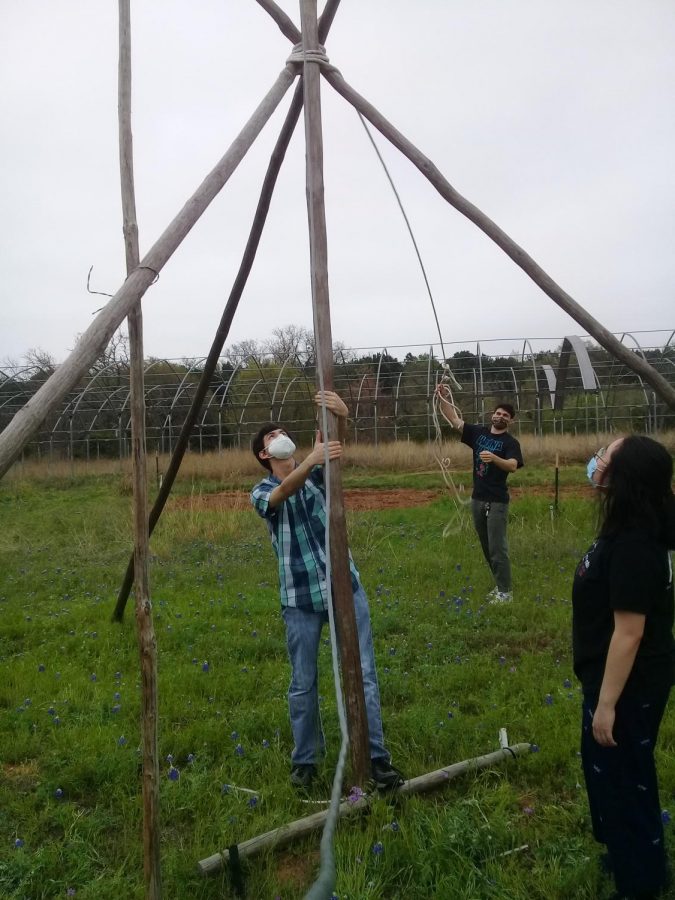Partnership with Red Cross gives students experience in humanitarian engineering
September 10, 2021
Editor’s Note: This article first appeared as part of the September 3 flipbook.
After the Cockrell School of Engineering teamed up with the Red Cross to distribute a device that creates low-cost menstrual pads for women in areas of need, the group now aims to tackle climate change and set up an international field site where they can test products.
The partnership, which officially began last spring, will distribute aid products made by UT’s Humanitarian Product Design course. The group also created a machine to process latrine waste and portable solar-powered lighting systems that are currently in the prototype stage. The group hopes to have working products in 10 years for the global south and refugee camps in Bangladesh, but it does not know an exact timeline yet.
“We’re very honored to work with the International Federation of Red Cross and Red Crescent Societies,” said mechanical engineering professor Janet Ellzey. “The knowledge that they bring to us is really invaluable, and we could not have this program without them as a partner.”
The course lasts two semesters and is open to all engineering students. Ellzey said students will plan a product in the first semester and create a prototype of it the second semester.
Faith Leake, an electrical and computer engineering sophomore, is in her second semester of the course and said working on the biodigester that converts latrine waste into fertilizer was the highlight of her spring.
“It’s all for some goal of helping real people,” Leake said. “This stuff we’re designing and prototyping is going to be implemented in a refugee camp. We’re working with leaders for the Red Cross and like Bangladesh right now. So it’s really got long-term or real effects in parts of the world.”
Ellzey said the idea for the course came after a group of mechanical engineering students wanted to help underserved communities. The team that created the menstrual pad machine did so in response to Syrian refugees in need.
While about 300,000 Syrian refugee women live in Lebanon as of spring 2019, only 12,000 receive any menstrual hygiene aid such as pads and laundry soap, according to a report by the Mechanical Engineering Design Project Program.
In the summer of 2018, Ellzey said the Lebanese Red Cross tested the menstrual pad machine, which utilizes a panini press type structure to press sanitary pads from layers of material.
The device was successful in creating menstrual pads with similar efficacy to commercial menstrual pad products, according to a report from Hygiene, Empowerment, and Research for Social Impact.
“Your generation is very committed to positively impacting society,” Ellzey said. “Particularly, engineering students wanted to use their engineering skills to improve the lives of marginalized communities.”
Both Ellzey and William Carter, an alumnus working for the Red Cross, said they envision students doing big things with the program.
Carter said he hopes the program will produce engineers with broader perspectives to deal with challenges such as climate change.
“With climate change, we need humanitarian engineers, and we just don’t need them in Bangladesh, we’re going to be needing them in the United States of America,” Carter said. “We need more engineers bringing their skill sets and their work to deal with the challenge of our times.”











